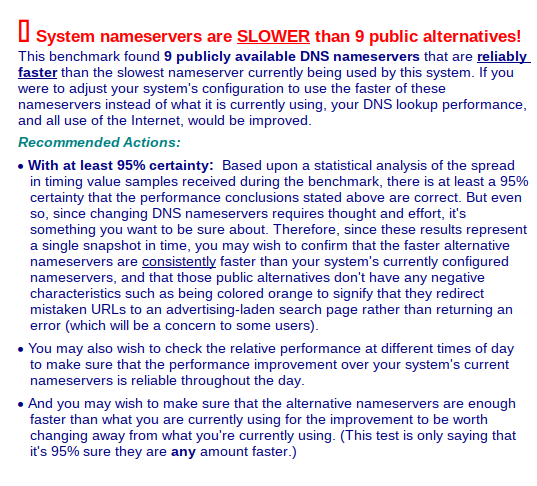Hello everyone,
I am using the Microsoft Onedrive Client from abraunegg but since I reinstalled my system the client does not start. The result of onedrive --synchronize is
(base) manjaro% onedrive --synchronize
Configuration file successfully loaded
Cannot connect to Microsoft OneDrive Service - Network Connection Issue
ERROR: Microsoft OneDrive API returned an error with the following message:
Error Message: Timeout was reached on handle 55E6756618E0
Calling Function: testNetwork()
Unable to reach Microsoft OneDrive API service, unable to initialize application
In the FAQ it says that I should run the command
curl -I --connect-timeout 5 --max-time 5 https://login.microsoftonline.com
The result I get is
(base) manjaro% curl -I --connect-timeout 5 --max-time 5 https://login.microsoftonline.com
curl: (28) Resolving timed out after 5000 milliseconds
In the FAQ it says that
[…] you need to fix your local environment so that the
curlcommand executes successfully. Once this does, the OneDrive Client will operate normally.
But I have no idea how I could do so. Can anyone give me some hints on what to try or help me otherwise?
That would help me a lot!
David
PS:
Information about my software and hardware:
manjaro% inxi -Fazy
System:
Kernel: 5.9.16-1-MANJARO x86_64 bits: 64 compiler: gcc v: 10.2.0
parameters: BOOT_IMAGE=/boot/vmlinuz-5.9-x86_64
root=UUID=116ef32c-01ce-4135-b673-172a7f9c2c4d rw quiet splash apparmor=1
security=apparmor udev.log_priority=3
Desktop: GNOME 3.38.2 tk: GTK 3.24.24 wm: gnome-shell dm: GDM 3.38.2.1
Distro: Manjaro Linux
Machine:
Type: Desktop Mobo: ASUSTeK model: P8B75-M LX PLUS v: Rev X.0x
serial: <filter> UEFI: American Megatrends v: 0501 date: 10/10/2012
CPU:
Info: Quad Core model: Intel Core i5-3330 bits: 64 type: MCP
arch: Ivy Bridge family: 6 model-id: 3A (58) stepping: 9 microcode: 21
L2 cache: 6 MiB
flags: avx lm nx pae sse sse2 sse3 sse4_1 sse4_2 ssse3 bogomips: 23956
Speed: 1596 MHz min/max: 1600/3200 MHz Core speeds (MHz): 1: 1596 2: 1597
3: 1597 4: 1597
Vulnerabilities: Type: itlb_multihit status: KVM: VMX unsupported
Type: l1tf mitigation: PTE Inversion
Type: mds mitigation: Clear CPU buffers; SMT disabled
Type: meltdown mitigation: PTI
Type: spec_store_bypass
mitigation: Speculative Store Bypass disabled via prctl and seccomp
Type: spectre_v1
mitigation: usercopy/swapgs barriers and __user pointer sanitization
Type: spectre_v2 mitigation: Full generic retpoline, IBPB: conditional,
IBRS_FW, STIBP: disabled, RSB filling
Type: srbds status: Vulnerable: No microcode
Type: tsx_async_abort status: Not affected
Graphics:
Device-1: Intel Xeon E3-1200 v2/3rd Gen Core processor Graphics
vendor: ASUSTeK P8H77-I driver: i915 v: kernel bus ID: 00:02.0
chip ID: 8086:0152
Device-2: NVIDIA GK106 [GeForce GTX 650 Ti] vendor: Gigabyte driver: nouveau
v: kernel bus ID: 01:00.0 chip ID: 10de:11c6
Display: wayland server: X.org 1.20.10 compositor: gnome-shell
driver: intel,nouveau unloaded: modesetting alternate: fbdev,nv,vesa
display ID: 0 resolution: <missing: xdpyinfo>
OpenGL: renderer: NVE6 v: 4.3 Mesa 20.3.1 direct render: Yes
Audio:
Device-1: Intel 7 Series/C216 Family High Definition Audio
vendor: ASUSTeK P8Z77-V LX driver: snd_hda_intel v: kernel bus ID: 00:1b.0
chip ID: 8086:1e20
Device-2: NVIDIA GK106 HDMI Audio vendor: Gigabyte driver: snd_hda_intel
v: kernel bus ID: 01:00.1 chip ID: 10de:0e0b
Device-3: Microdia Webcam Vitade AF type: USB driver: snd-usb-audio,uvcvideo
bus ID: 1-4:2 chip ID: 0c45:6366 serial: <filter>
Sound Server: ALSA v: k5.9.16-1-MANJARO
Network:
Device-1: Realtek RTL8192CE PCIe Wireless Network Adapter vendor: ASUSTeK
driver: rtl8192ce v: kernel port: d000 bus ID: 03:00.0 chip ID: 10ec:8178
IF: wlp3s0 state: up mac: <filter>
Device-2: Realtek RTL8111/8168/8411 PCI Express Gigabit Ethernet
vendor: ASUSTeK P8 series driver: r8169 v: kernel port: c000 bus ID: 04:00.0
chip ID: 10ec:8168
IF: enp4s0 state: down mac: <filter>
Drives:
Local Storage: total: 931.51 GiB used: 47.01 GiB (5.0%)
SMART Message: Required tool smartctl not installed. Check --recommends
ID-1: /dev/sda maj-min: 8:0 vendor: Hitachi model: HDS721010DLE630
size: 931.51 GiB block size: physical: 4096 B logical: 512 B speed: 6.0 Gb/s
serial: <filter> rev: A650
Partition:
ID-1: / raw size: 48.83 GiB size: 47.81 GiB (97.92%) used: 16.41 GiB (34.3%)
fs: ext4 dev: /dev/sda9 maj-min: 8:9
ID-2: /boot/efi raw size: 512 MiB size: 511 MiB (99.80%)
used: 324 KiB (0.1%) fs: vfat dev: /dev/sda7 maj-min: 8:7
ID-3: /home raw size: 50.63 GiB size: 49.59 GiB (97.94%)
used: 30.61 GiB (61.7%) fs: ext4 dev: /dev/sda10 maj-min: 8:10
Swap:
Kernel: swappiness: 60 (default) cache pressure: 100 (default)
ID-1: swap-1 type: partition size: 2 GiB used: 0 KiB (0.0%) priority: -2
dev: /dev/sda8 maj-min: 8:8
Sensors:
System Temperatures: cpu: 29.8 C mobo: 27.8 C gpu: nouveau temp: 28.0 C
Fan Speeds (RPM): N/A gpu: nouveau fan: 1260
Info:
Processes: 218 Uptime: 16m wakeups: 0 Memory: 7.64 GiB
used: 2.11 GiB (27.5%) Init: systemd v: 247 Compilers: gcc: 10.2.0 Packages:
pacman: 1376 lib: 382 flatpak: 0 Shell: Zsh v: 5.8
running in: gnome-terminal inxi: 3.2.01




 And it’s great for privacy too.
And it’s great for privacy too.